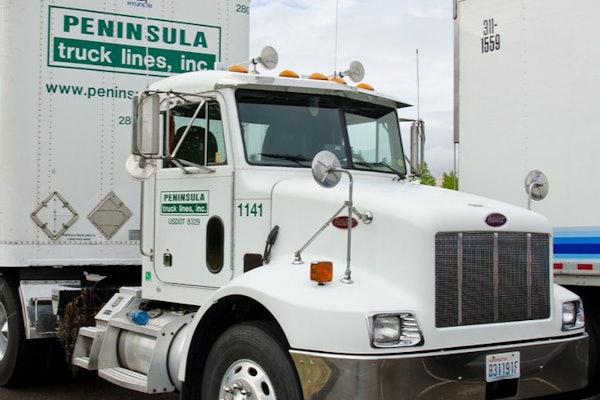When the public’s attention turns to highway accidents, it’s tempting for governors and other elected officials to start pointing fingers at big trucks. Politically, it’s easier to blame the trucking industry for traffic deaths than to focus on the real problem – the aggressive and reckless driving habits of voting constituents.
So Pennsylvania Gov. Edward Rendell deserves some credit for announcing last month that his state is joining Smooth Operator, an education and enforcement initiative launched nearly 10 years ago by law enforcement agencies in Maryland, Virginia and Washington, D.C. Those jurisdictions use coordinated enforcement waves four times a year to deter aggressive driving. They use marked and unmarked patrol vehicles – and what they call “nontraditional vehicles” – to target aggressive drivers. On the education side, law enforcement agencies share media exposure and offer a unified voice on traffic safety.
In Pennsylvania, the pilot Smooth Operator program this summer will involve state and local police and the state Department of Transportation in a coordinated effort that includes a media campaign to educate drivers about the dangers of aggressive driving and a law enforcement initiative to crack down on careless drivers. Pennsylvania officials have targeted 12 counties for the pilot program based on high levels of aggressive driving. The state police will share its resources – radar, reconnaissance aircraft, motorcycles and so on – to help municipal police along stretches of highway it seldom patrols, and PennDOT will distribute $403,000 in federal dollars to state and local police operations.
“Aggressive driving has taken too many lives in Pennsylvania, and it is critical that we put a stop to it,” Rendell said in announcing the program. Indeed, the state estimates that more than 1,000 traffic fatalities in Pennsylvania last year were caused by aggressive driving, such as speeding, careless passing, unsafe lane changes, tailgating and running red lights and stop signs.
No doubt, some of those aggressive drivers sat behind the wheels of large trucks. Trucking operations must do their part to police aggressive behavior among their own drivers. But with the majority of accidents involving large trucks – and the vast majority of all highway accidents – caused by automobile drivers, a debate focused on drivers rather than vehicles can only help the trucking industry.
Law enforcement agencies that already participate in the Washington, D.C., area’s Smooth Operator initiative believe the effort clearly has paid off. “We in Maryland are convinced the Smooth Operator traffic safety initiative is changing people, saving lives,” says Lt. Col. Michael Fischer of the Maryland State Police.
Saving lives is paramount, of course, but “changing people” could bring other long-term benefits for trucking. What if these people were changed not just in their behavior behind the wheel but in their behavior in the jury box? Imagine a judicial environment in which jurors focused more on driving habits than on the size of the vehicle. Based on the percentages, the trucking industry would see fewer and smaller judgments in court.
Don’t dismiss the power of changing people’s attitudes. Just look at how conservative lawmakers transformed public opinion by recasting the estate tax as the “death tax.”
Awakening citizens to what is really happening on America’s highways ultimately will benefit trucking more than any image campaign or tort reform legislation the industry can craft.
So if you live or do business in Pennsylvania, thank Rendell – and ask him to make Smooth Operator a permanent initiative. Everyone else should encourage their states to adopt similar programs. It’s about drivers, not trucks.







